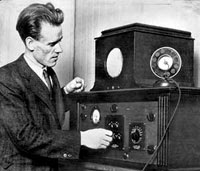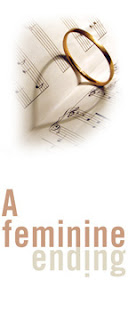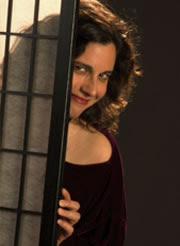 "Young Frankenstein" at the Hilton Theatre, October 25, 2007
"Young Frankenstein" at the Hilton Theatre, October 25, 2007Mel Brooks returns to Broadway with another stage adaptation from his film collection. Based on James Whale's 1930s adaptation of Mary Shelley's book, the Brooks tongue almost splits the zipper in the monster's cheek.
The show is relatively faithful to the 1974 film, with a few understandable modifications for a live stage production. What disappointed me was one of two things:
- Either I never realized that Brooks wrote from a formula, or
- Mr. Meehan has, unwittingly, imposed one onto Mr. Brooks' material
As the show progressed, I kept thinking, "Hmm, that reminds me of 'The Producers'." Let's review the similarities, shall we?
- Two featured male roles - Leo/Max, Frederick/Igor
- Blond sex kitten - Ulla, Inga
- Old Ladies: Old ladies, Frau Blucher (s/f/x horse whinny)
- Featured oaf: Franz, The Monster
- Featured supporting role which grew into a lead in a swell gown: Roger Debris, Elizabeth
- Busby Berkeley-style production number: Springtime For Hitler, Puttin' On The Ritz
Brook's melodies don't hold up when compared with his efforts on "Producers" either. As another blogger put it (paraphrasing here), "everything ends up sounding like Hava Nagila." I'll add that Mr. Brooks seems to have pulled out Kander and Ebb's "Guide to Recreating a Kurt Weill Score" but only read the first three chapters.
With his same creative team in place for this second Broadway effort, some similarities were bound to occur. It's unfortunate that one missing piece from this group is Mike Ockrent, who was the original director of "Producers" and died while that show was under development. I've always wondered how much he contributed to that show's success, and I think this "YF" confirms that the contribution was significant. The very-talented Ms. Stroman (a/k/a the Widow Ockrent) makes a noble effort here, but with this material there's only so much the choreographer-cum-director can fix. Speaking of, the choreography is up to her delightful standards.
By now, most of you have heard about Roger Bart's slipped disc which pulled him from the show last week. I saw his understudy, Matthew LaBanca giving it everything he has to fill the shoes, but he's just not there yet. It's a competent performance, but this role requires a star turn. There aren't many Ruby Keelers out there who can walk on as an understudy and walk off a star. Keep an eye on him, however. He's a talented young man with strong potential.
It's Christopher Fitzgerald's Igor whose scenery chewing is only outdone by Megan Mullally's Elizabeth. There are many ghosts around this show, some living, some dead. Of the cast, these are the only two who really manage to make their roles their own. Mr. Fitzgerald hops, bounces, mopes and twitters about such that I never stopped to think about Marty Feldman. While I liked Madeline Kahn's interpretation of Elizabeth better, Ms. Mullally is to be commended for stalking her petulant way through and leaving her own mark on the part, even if that mark is a la Charles Busch.
Then there's Andrea Martin. After last year's workshop included Cloris Leachman reprising her role, the decision was made to use someone else, prompting some Page Six style jabs and retorts. In the end I think the right decision was made. Ms. Martin's Frau Blucher (s/f/x horse whinny) separates herself from the cast, rising above the material for a truly hysterical performance. (By the way, did everyone see the explanation in the press as to why the horses always react when her name is mentioned? Leave a comment if you want the world to know. I'll post it in a week or so if no one's beat me to it.)
Struggling is poor Sutton Foster, but I don't think she knows that. She strolls through the blonde role, and does have a bit of a "How did I get Cady Huffman's part? (Did she die?)" about her. She's got the look, and thanks to William Ivey Long's usual fabulous costumes, the parts. Still, it's as if she doesn't know how to be sexy without turning into a vamp. Ms. Stroman hasn't managed to get that out of Ms. Foster yet, despite all the struts and poses. Ms. Foster's other roles haven't been quite so sexy, so this does end up as a bit of a stretch for her. She needs to leave Millie Dillmount and Jo March behind.
Shuler Hensley's Monster spends most of the show moaning and groaning, but he does get to show off his years of dance class in "Putting on the Ritz."
Robin Wagner's sets are up to his usual high standard, and are amazingly enhanced by Peter Kaczorowski's lights and Mac Brickman's special effects. The dream sequence in Act I is one of the best uses of projections I've seen on stage yet. As I mentioned, William Ivey Long's costumes are just delicious, from the Transylvanian peasants to Elizabeth's swank gowns.
I don't see this show sweeping the Tony's like last time, but it's a good solid piece even with its predictability factor.








